David W. Bates
Foundation Model of Electronic Medical Records for Adaptive Risk Estimation
Feb 10, 2025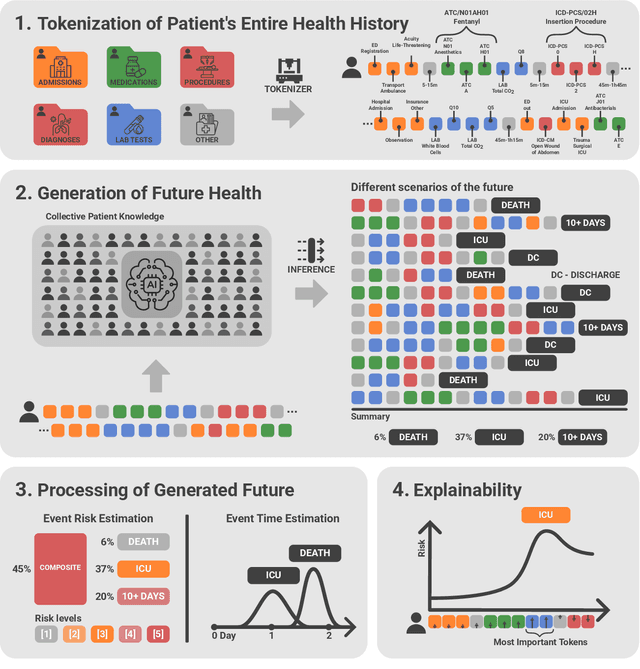

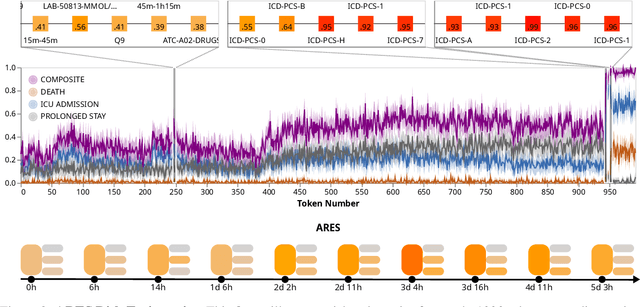
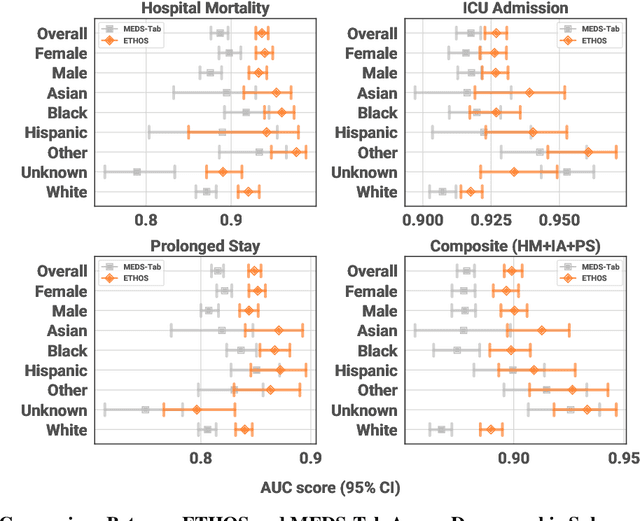
Abstract:We developed the Enhanced Transformer for Health Outcome Simulation (ETHOS), an AI model that tokenizes patient health timelines (PHTs) from EHRs. ETHOS predicts future PHTs using transformer-based architectures. The Adaptive Risk Estimation System (ARES) employs ETHOS to compute dynamic and personalized risk probabilities for clinician-defined critical events. ARES incorporates a personalized explainability module that identifies key clinical factors influencing risk estimates for individual patients. ARES was evaluated on the MIMIC-IV v2.2 dataset in emergency department (ED) settings, benchmarking its performance against traditional early warning systems and machine learning models. We processed 299,721 unique patients from MIMIC-IV into 285,622 PHTs, with 60% including hospital admissions. The dataset contained over 357 million tokens. ETHOS outperformed benchmark models in predicting hospital admissions, ICU admissions, and prolonged hospital stays, achieving superior AUC scores. ETHOS-based risk estimates demonstrated robustness across demographic subgroups with strong model reliability, confirmed via calibration curves. The personalized explainability module provides insights into patient-specific factors contributing to risk. ARES, powered by ETHOS, advances predictive healthcare AI by providing dynamic, real-time, and personalized risk estimation with patient-specific explainability to enhance clinician trust. Its adaptability and superior accuracy position it as a transformative tool for clinical decision-making, potentially improving patient outcomes and resource allocation in emergency and inpatient settings. We release the full code at github.com/ipolharvard/ethos-ares to facilitate future research.
Zero Shot Health Trajectory Prediction Using Transformer
Jul 30, 2024Abstract:Integrating modern machine learning and clinical decision-making has great promise for mitigating healthcare's increasing cost and complexity. We introduce the Enhanced Transformer for Health Outcome Simulation (ETHOS), a novel application of the transformer deep-learning architecture for analyzing high-dimensional, heterogeneous, and episodic health data. ETHOS is trained using Patient Health Timelines (PHTs)-detailed, tokenized records of health events-to predict future health trajectories, leveraging a zero-shot learning approach. ETHOS represents a significant advancement in foundation model development for healthcare analytics, eliminating the need for labeled data and model fine-tuning. Its ability to simulate various treatment pathways and consider patient-specific factors positions ETHOS as a tool for care optimization and addressing biases in healthcare delivery. Future developments will expand ETHOS' capabilities to incorporate a wider range of data types and data sources. Our work demonstrates a pathway toward accelerated AI development and deployment in healthcare.
Using Twitter Data to Understand Public Perceptions of Approved versus Off-label Use for COVID-19-related Medications
Jun 29, 2022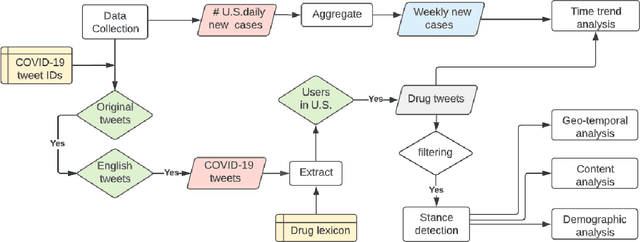

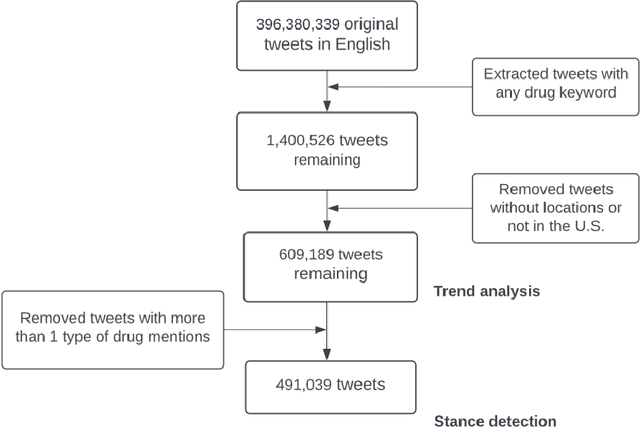
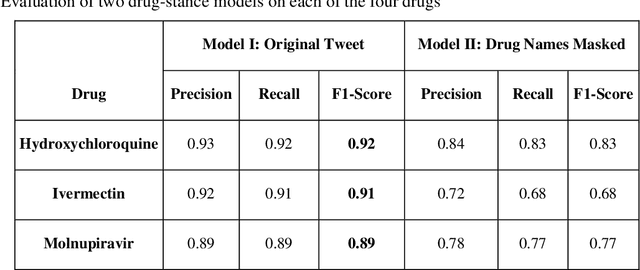
Abstract:Understanding public discourse on emergency use of unproven therapeutics is essential to monitor safe use and combat misinformation. We developed a natural language processing (NLP)-based pipeline to understand public perceptions of and stances on COVID-19-related drugs on Twitter across time. This retrospective study included 609,189 US-based tweets between January 29th, 2020 and November 30th, 2021 on four drugs that gained wide public attention during the COVID-19 pandemic: 1) Hydroxychloroquine and Ivermectin, drug therapies with anecdotal evidence; and 2) Molnupiravir and Remdesivir, FDA-approved treatment options for eligible patients. Time-trend analysis was used to understand the popularity and related events. Content and demographic analyses were conducted to explore potential rationales of people's stances on each drug. Time-trend analysis revealed that Hydroxychloroquine and Ivermectin received much more discussion than Molnupiravir and Remdesivir, particularly during COVID-19 surges. Hydroxychloroquine and Ivermectin were highly politicized, related to conspiracy theories, hearsay, celebrity effects, etc. The distribution of stance between the two major US political parties was significantly different (p<0.001); Republicans were much more likely to support Hydroxychloroquine (+55%) and Ivermectin (+30%) than Democrats. People with healthcare backgrounds tended to oppose Hydroxychloroquine (+7%) more than the general population; in contrast, the general population was more likely to support Ivermectin (+14%). We make all the data, code, and models available at https://github.com/ningkko/COVID-drug.
* This is a preliminary version. For full paper please refer to JAMIA
 Add to Chrome
Add to Chrome Add to Firefox
Add to Firefox Add to Edge
Add to Edge